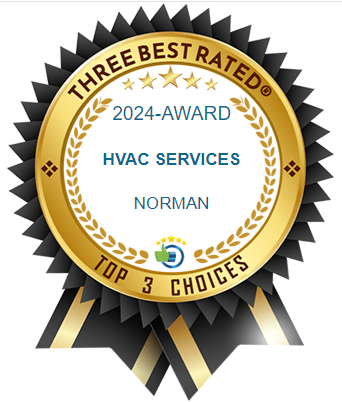Furnace Service in Norman, OK
24/7 Emergency Furnace Services Are Available
When furnaces break down, decreased heat efficiency and potential safety risks are sure to follow, underscoring the importance of having a reliable furnace. At Arthur's Air Conditioning, Heating, & Plumbing, we provide furnace repair and installation in Norman and the surrounding area to make sure your home or business stays comfortable and safe year-round.
We pride ourselves on our commitment to customer satisfaction and our ability to deliver top-quality furnace service tailored to the unique needs of every client.
We believe in transparency, reliability, and excellence in all we do. That's why we offer quotes, a satisfaction guarantee, and financing options through trusted institutions.
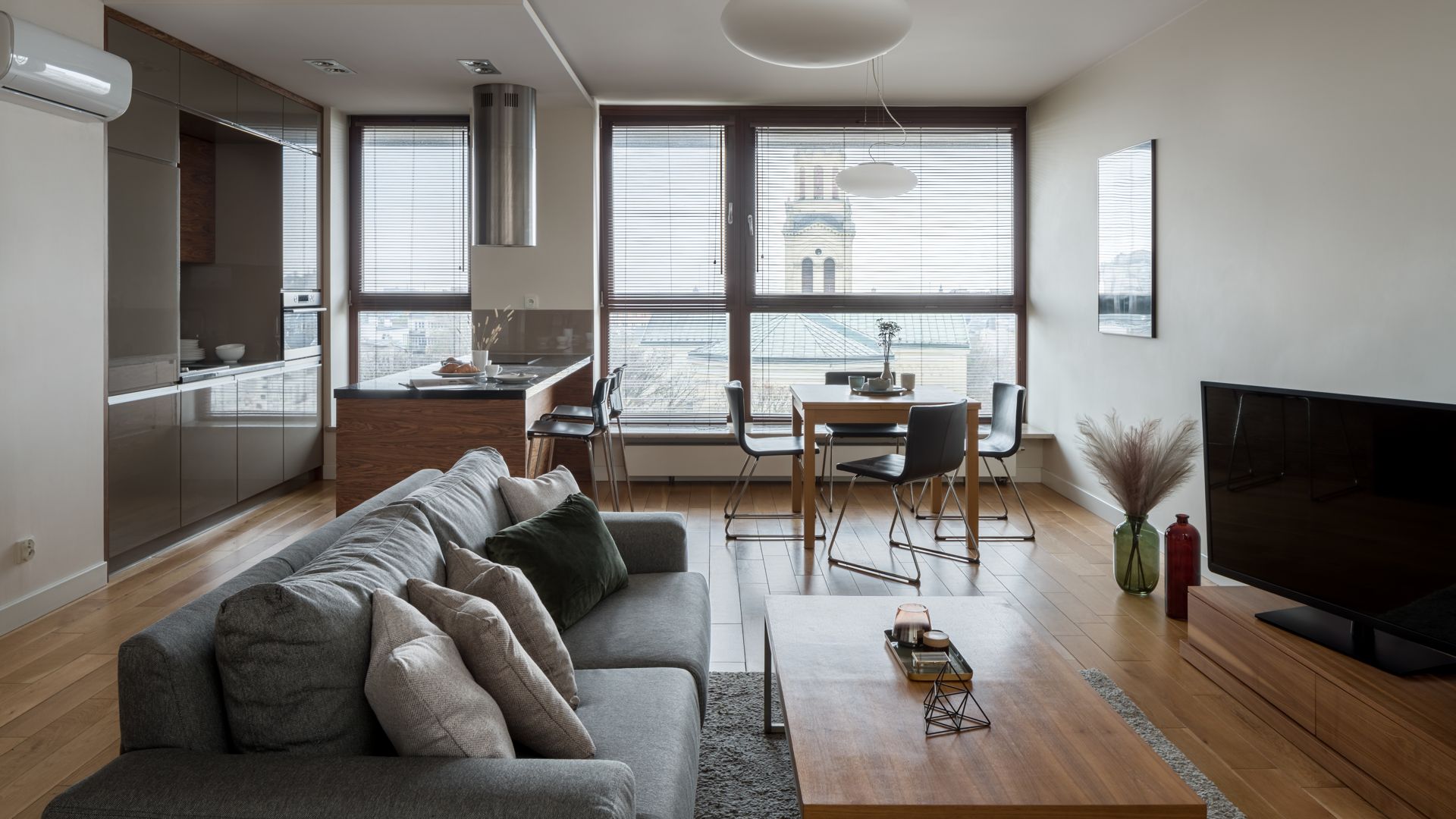
What Furnace Services Can We Help You With?
Our furnace services include:
- Furnace Installation: Professional installation of new furnaces to give you reliable and efficient heating. Our team helps you select the best model for your space and budget.
- Furnace Repair: Fast repair services for all types of furnace issues, including sudden breakdowns or lack of heat. We’re familiar with the variety of makes and models used throughout the area.
- Furnace Maintenance: Complete maintenance plans designed to keep your system running smoothly and prevent unexpected failures. Routine tune-ups extend the life of your unit and help you avoid costly replacements down the road.
- Furnace Replacement: Honest assessment and replacement of old or inefficient furnaces with new, energy-saving models. Modern units offer better performance and can lower your energy bills over time.
- Emergency Furnace Services: 24/7 emergency services for heating problems that just can’t wait. Our response team keeps your property comfortable and safe during sudden outages.
- Furnace Inspections: Careful inspections to evaluate the condition of your furnace and identify minor issues early. Regular checks help you avoid breakdowns during the busiest heating months.
We put your comfort first and believe every client deserves a warm, safe, energy-efficient home. For service you can trust, choose Arthur's Air Conditioning, Heating, & Plumbing.
What Are Common Furnace Issues Residents in Norman Face?
Keeping your furnace in good shape becomes vital when temperatures drop in Norman, OK. Several local factors and common issues can disrupt your heating. Regular maintenance reduces the risk of breakdowns, but it's helpful to know which warning signs to watch for with your furnace.
Homes in Norman face heating problems unique to the region. As cold fronts and dramatic temperature changes move through Oklahoma, your furnace can struggle to keep up, leading to increased cycling or drops in performance. Hard water can cause mineral buildup, which may impact system efficiency. Ice storms and power fluctuations sometimes affect electrical and safety controls. To avoid disruptive shutdowns, make periodic technical checks part of your routine.

Save on Your Next Royal Service
Deals You'll Love

-
“Clayton’s clearly a master at his craft and got our heat functioning in no time! So very appreciative!”Carly B.
-
 Chris General Manager
Chris General Manager -
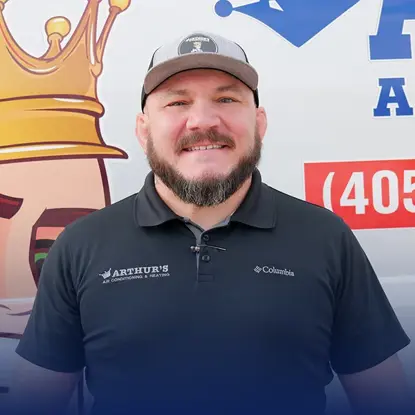 Marshall Comfort Advisor
Marshall Comfort Advisor -
 Layne DSP/CSR Supervisor
Layne DSP/CSR Supervisor -
 Cha'ela Customer Service Representative
Cha'ela Customer Service Representative -
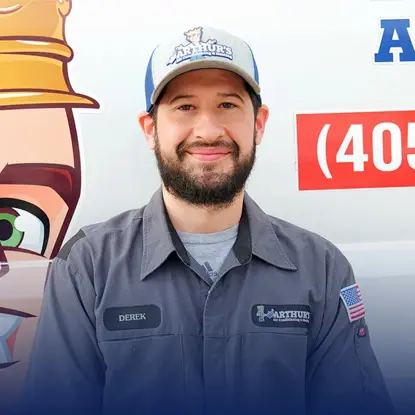 Derek Procurement
Derek Procurement -
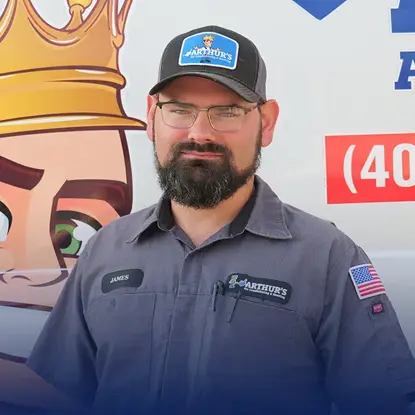 James Service Manager
James Service Manager -
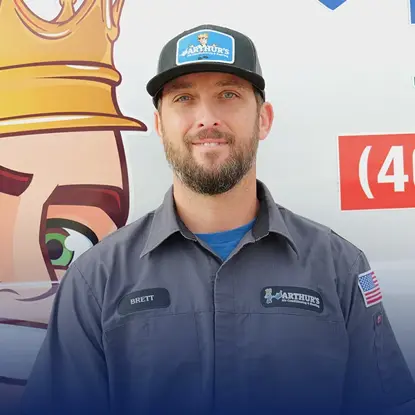 Brett Service Tech
Brett Service Tech -
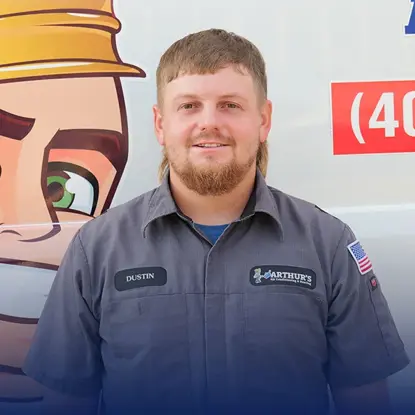 Dustin Service Tech
Dustin Service Tech -
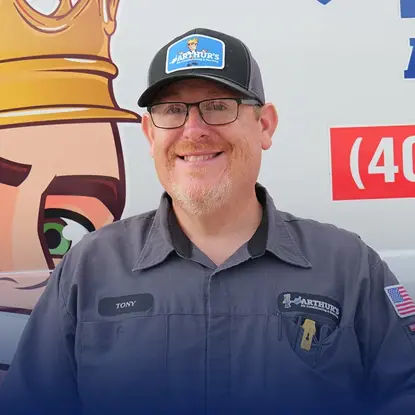 Tony Service Tech
Tony Service Tech -
 Kolby Install Manager
Kolby Install Manager -
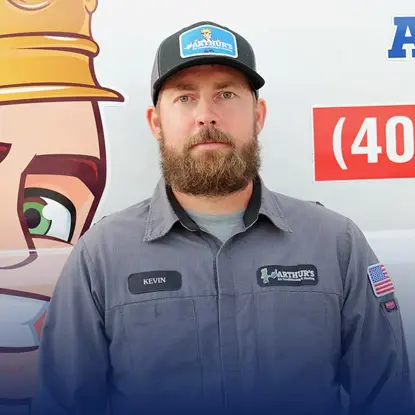 Kevin Install Lead
Kevin Install Lead -
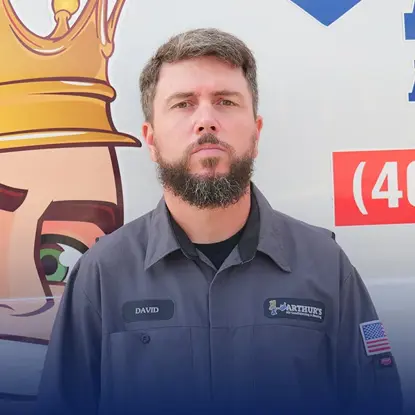 David Install Lead
David Install Lead -
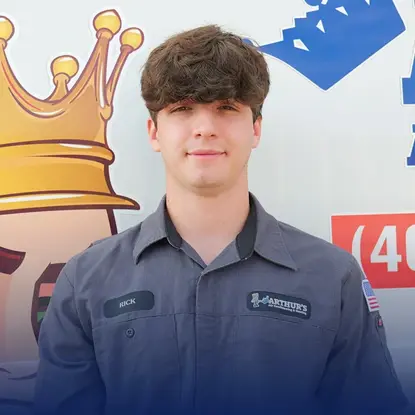 Ricky Install Helper
Ricky Install Helper -
 Kole Install Helper
Kole Install Helper -
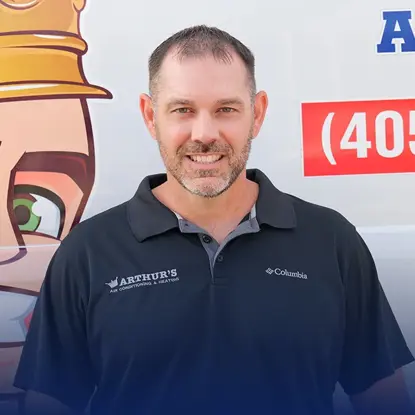 Brian Owner
Brian Owner -
 Jennifer Owner, HR
Jennifer Owner, HR

We're Built On Trust & Care
You Will Always Receive the Royal Treatment
-
Competitive PricingThe last thing that you want is to break the bank after an emergency heater or AC service. Our competitive pricing system gives you peace of mind knowing we have the best rates in town.
-
Customer EducationEveryone likes to weigh their options. We’ll answer any questions you may have and provide complete information so you can make the best decision for you and your home.
-
Professional HVAC Technicians
Our dedicated HVAC service technicians are all licensed and background-checked so that you receive high-quality service that you can trust, every time.
-
Accountability
To us, respect is everything. It begins with how we treat you on the phone, includes keeping you informed about all your options, and shows in the way we respect your home by cleaning up after ourselves while on the job.
The Royal Treatment
Elevated Service, delivered with care
-
Lifetime Manufacturer's Warranty Our Commitment to YouOur limited lifetime manufacturer's warranty gives you long-term confidence in every installation we complete.Start Now
-
Flexible Financing Available Budget-Friendly SolutionsGet the home comfort you need with Express or Upgrade financing. Only a soft credit inquiry is required, so your credit score stays safe while you enjoy flexible payment options.Apply Now
-
Your Comfort is Our Priority Quality You Can Count OnWith over a quarter century of experience, skilled technicians, and a focus on customer satisfaction, we deliver reliable HVAC solutions you can trust.Learn More





